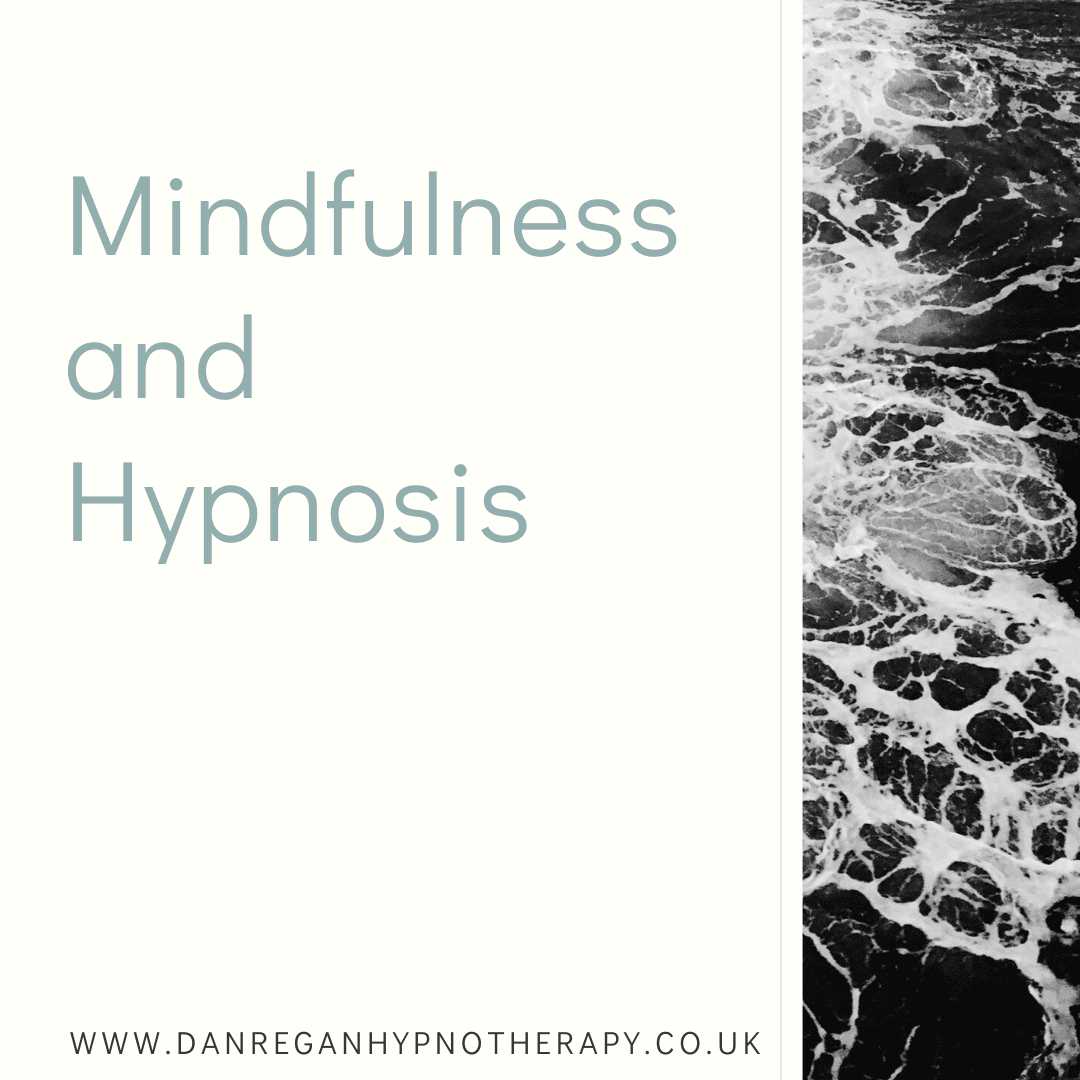Mindfulness and Hypnosis – Hypnotherapy in Ely and Newmarket
Lockdown is easing and the sun is out. It’s a perfect time to pause and just enjoy the warmth of the sun, the sound of the birds and the blueness of a cloudless sky. Sometimes being present in this very moment is a wonderful thing to experience.
Rather than letting your mind fill with stuff from the past that has already happened, or imagining the future which has yet to happen, it can be beneficial to be in the here and now. This is something that is very much a central element of mindfulness.
Mindfulness, which originates from Buddhist philosophy and practice, can be defined as the non-judgemental, accepting experience of the present, as it unfolds moment by moment. Rather than letting your mind wander or thinking about things that have happened or might happen, mindfulness involves paying attention to present moment experiences. You pay attention to your thoughts, feelings and sensations with an attitude of openness and acceptance.
In recent years, mindfulness has become a major player in the field of mental health, particularly in the field of stress reduction. While often treated as a discreet activity (e.g. mindfulness meditation), you can also be active and doing things with a sense of mindfulness (something I’ve covered before).
With its increasing profile, and with its clear overlap with elements of hypnosis, here in this article I’ve covered the research into mindfulness hypnosis for reducing stress, the benefits of mindfulness and their relationship with each other in therapy.
Mindfulness Hypnosis Reduces Stress
I’ve written before about how adding hypnosis to cognitive behavioural therapy tends to lead to better therapeutic results than cognitive behavioural therapy on its own. And research has now also demonstrated that adding hypnosis to mindfulness can help you to reduce stress (something I covered here: Mindful Hypnotherapy to Reduce Stress and Increase Mindfulness)
Olendzki et al (Mindful hypnotherapy to reduce stress and increase mindfulness: A randomized controlled pilot study, 2020) investigated the feasibility of mindful hypnotherapy for stress reduction in a randomized trial.
Results of the study demonstrated that the mindful hypnotherapy participants recorded large, statistically reliable, and clinically significant improvements in perceived stress, overall mindfulness and psychological flexibility, and psychological distress. As if this wasn’t positive enough already, each of the subscales of distress individually decreased by a significant margin, including depression, hopelessness, anxiety, and anger.
These are very beneficial outcomes that support mindful hypnotherapy as a way of significantly decreasing psychological distress and stress.
“In conclusion, mindful hypnotherapy shows promise for being an effective intervention for decreasing stress. Given that the results for mindfulness and psychological flexibility were comparable or superior to mindfulness interventions delivered in a nonhypnotic context, this novel intervention shows potential for being a unique and a valuable contribution to stress reduction interventions” (Olendzki, 2020).
The evidence here shows that combining mindfulness and hypnotherapy can help you to reduce your stress.
The Benefits of Mindfulness
Hypnosis and mindfulness do share many commonalities, with both involving tuning into what is psychologically going on in your mind, such as the thoughts, beliefs and perceptions you hold. I often incorporate elements of mindfulness into some of my hypnosis sessions to help people become present and notice the kind of thinking that is running through their mind in order to change it to something more helpful. One of the biggest differences between mindfulness and hypnosis may be that hypnosis tends to be more focused on an end goal in terms of making positive changes.
And as Stefan and David explains (Mindfulness in therapy: A critical analysis, 2020), research data suggests that mindfulness can help with issues such as depression, stress and pain reduction.
However, they caution that mindfulness based interventions should not be used indiscriminately, regardless of the presenting issues. Mindfulness alters the impact of, and response to thoughts and feelings, and thus we are less likely to engage in our usual (maladaptive) patterns of behaviour. As such, it can lower your feelings and emotions about something. Too much anxiety about an exam, for example, can impact on performance yet too relaxed an attitude or not having some level of anxiety and stress could also impact on how well you do. Emotion is often a key driver of taking action, take too much away by detaching from it and that in itself could cause you problems.
“In a way, we could become too “serene” as to adaptively cope with challenging situations or to follow our (adaptive) goals.”
In addition, they suggest, when facing negative or challenging life events, functional negative emotions (e.g., sadness, concern, regret) are normal human experiences and can help us cope with the situation and find constructive solutions to deal with things. On the flip side, dysfunctional emotions (depressed rather than sad, anxiety rather than concern, anger rather than annoyance), can lead to excessive emotion (anxiety, anger) ir not enough emotion and motivation (depression).
“Therefore, the primary objective of psychological interventions is not to diminish emotional responses by employing detachment but to transform dysfunctional negative emotions into functional ones, and we do that by changing the underlying, irrational/distorted beliefs into rational beliefs.”
Sometimes therapy is about reducing unhelpful emotions, such as anxiety and stress, yet some times it is more about changing how you think about things into something more beneficial. In fact, Stefan and David suggest that, taking into account the evidence that mindfulness-based interventions are effective for decreasing negative emotions, they should be primarily used in treating chronic or severe psychiatric conditions, which are characterised by high intensity emotions, and severely disrupted cognition (e.g. anxiety, stress, depression). And certainly hypnosis is effective with anxiety, stress and depression too, perhaps further supporting the use of both approaches together where pertinent.
Mindfulness and Hypnosis
“Mindfulness has been transformed over recent years from a spiritual practice to a method of clinical intervention. This is a new evolutionary step in applying mindfulness in ways that move it much, much closer to the related domain of hypnosis” (Yapko, Contemplating… the obvious: What you focus on, you amplify, 2020).
As Yapko describes in his article, differences between hypnosis and mindfulness most certainly exist but not because of innately different structures. On the contrary, the differences exist because of what each approach is likely to focus upon in terms of a session’s goals and content. As already mentioned, hypnosis and mindfulness share much common ground. They are about following suggestions to focus on specific things, such as your breathing or a particular thought.
Hypnosis may tend to focus on different elements of thoughts and feelings than those focused upon in mindfulness and it’s likely there is an overlap in the parts of the brain engaged (depending on the goals of the therapy..
“Encouraging people to focus, either narrowly or broadly, internally or externally, concretely or abstractly, as a means of becoming more aware, open, and accepting is not unique to either hypnosis or mindfulness, however. Suggestion is inherent across all treatments. Knowing this helps us focus more on the essence of something rather than its packaging and advertising. Mindfulness is a wonderful vehicle for connecting people to their resources and better selves. So is hypnosis.”
I’ve found when working with clients, and incorporated in some of my hypnosis downloads, mindfulness techniques can help reduce anxiety and stress, so that you are more mentally calm and physically relaxed to engage with psychological processes and make beneficial changes. Those techniques can also help you to tune into your thinking as a step in tackling unhelpful thoughts or overthinking.
And as the above sources and research also suggests, there is much you can gain, particularly perhaps in anxiety and stress reduction, from making use of mindful hypnotherapy if you want to change how you think and feel now into something that helps you start to feel better in yourself.
To your success,
Dan Regan
Hypnotherapy in Ely & Newmarket
Need some help to deal with your anxiety and stress? Book your Complimentary Hypnotherapy Strategy Session with Dan now: Appointments
And check out these powerful hypnosis downloads that can start helping you right away: Hypnosis Downloads
References:
Olendzki, N., Elkins, G.R., Slonena, E., Hung, J. and Rhodes, J.R., 2020. Mindful hypnotherapy to reduce stress and increase mindfulness: A randomized controlled pilot study. International Journal of Clinical and Experimental Hypnosis, 68(2), pp.151-166.
Stefan, S. and David, D., 2020. Mindfulness in therapy: A critical analysis. International Journal of Clinical and Experimental Hypnosis, 68(2), pp.167-182.
Yapko, M.D., 2020. Contemplating… the obvious: What you focus on, you amplify. International Journal of Clinical and Experimental Hypnosis, 68(2), pp.144-150.





0 Comments